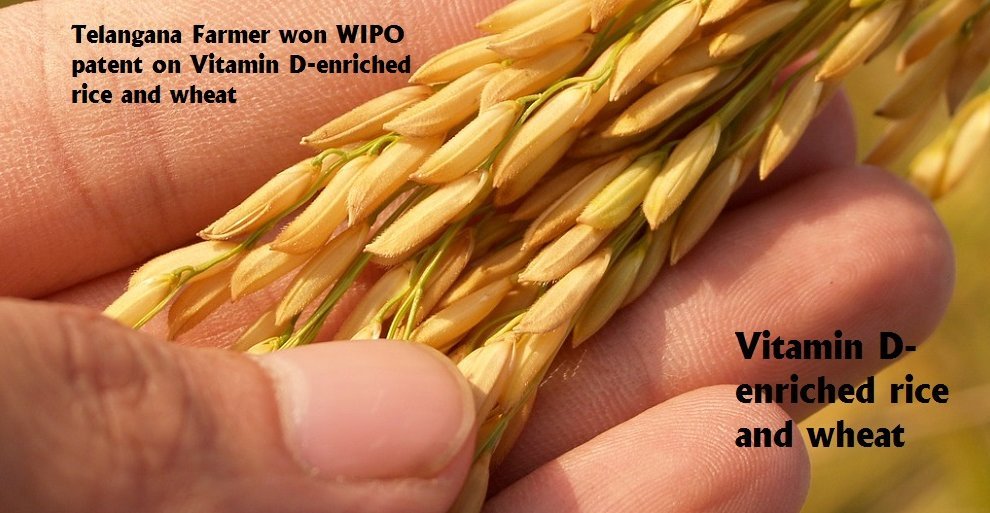Farmer from Hyderabad, Telangana, Shri Chintala Venkat Reddy, the Winner of the Padma Shri Award in February 2020 for its natural innovations in agriculture, the World Intellectual Property Organization (WIPO) won the patent on Vitamin D-enriched rice and wheat varieties on 11 February 2021.
Mr. Chintala Venkat Reddy was a noisilent observer when his doctor friends talked about vitamin D deficiency and how it could affect the human body. As a farmer, however, he was not too excited about the idea of loading the body with the drugs needed for Vitamin D.
Also Read: Iran clearing Indian basmati rice exporters’ debts of Rs 1,700 crore
After listening to the doctors, he began working on a technique that would naturally enrich rice and wheat with vitamin D. The 70-year-old farmer who lives in Alwal, Secunderabad of Telangana state, asserts, “After working on it for two years, I have succeeded. After filing for a national patent in August 2019 and one year later, I applied for an international patent on 1 August 2020.
My concern was very simple: why should we take medicines for something that comes to us naturally, free of charge? I’ve already been working with Vitamin A and C on rice; my crops are fed with natural nutrients through drip irrigation system. It’s a simple technique and it’s perfectly natural. I adjusted the process and nutrients to enrich rice and wheat.
Venkat Reddy is proud to have won the WIPO patent and hopes that farmers around the world will adopt a method to combat vitamin D deficiency. He explains, “Vitamin D is such an essential mineral, and although it is present abundantly, we have to rely on medicines. Normal or conventional rice and wheat do not contain vitamin D.
Also Read: India world’s largest producer of pulses adds nearly 24% to global production
By means of my farming method, I was able to check the presence of vitamin D starting from 102 international units (IUs) per 100 grams to 141 IUs per 100 grams of rice. The same goes for wheat. My experiments on the agricultural plot in Alwal resulted in 1606 IU per 100 grams and 1832 IU per 100 grams of wheat.
Other efforts
This isn’t just Venkat Reddy’s success. Last year 2020, his innovative technique of using subsoil as a pest repellent did help fellow farmers to prevent locust attacks in their fields.
“I have always been in favor of the natural means of cultivation that will eventually take care of soil health, the environment and us. I’m looking at techniques that are not costly for farmers. I have a duty as a farmer towards the soil and our generations to come,” he suggests.


















Add Comment